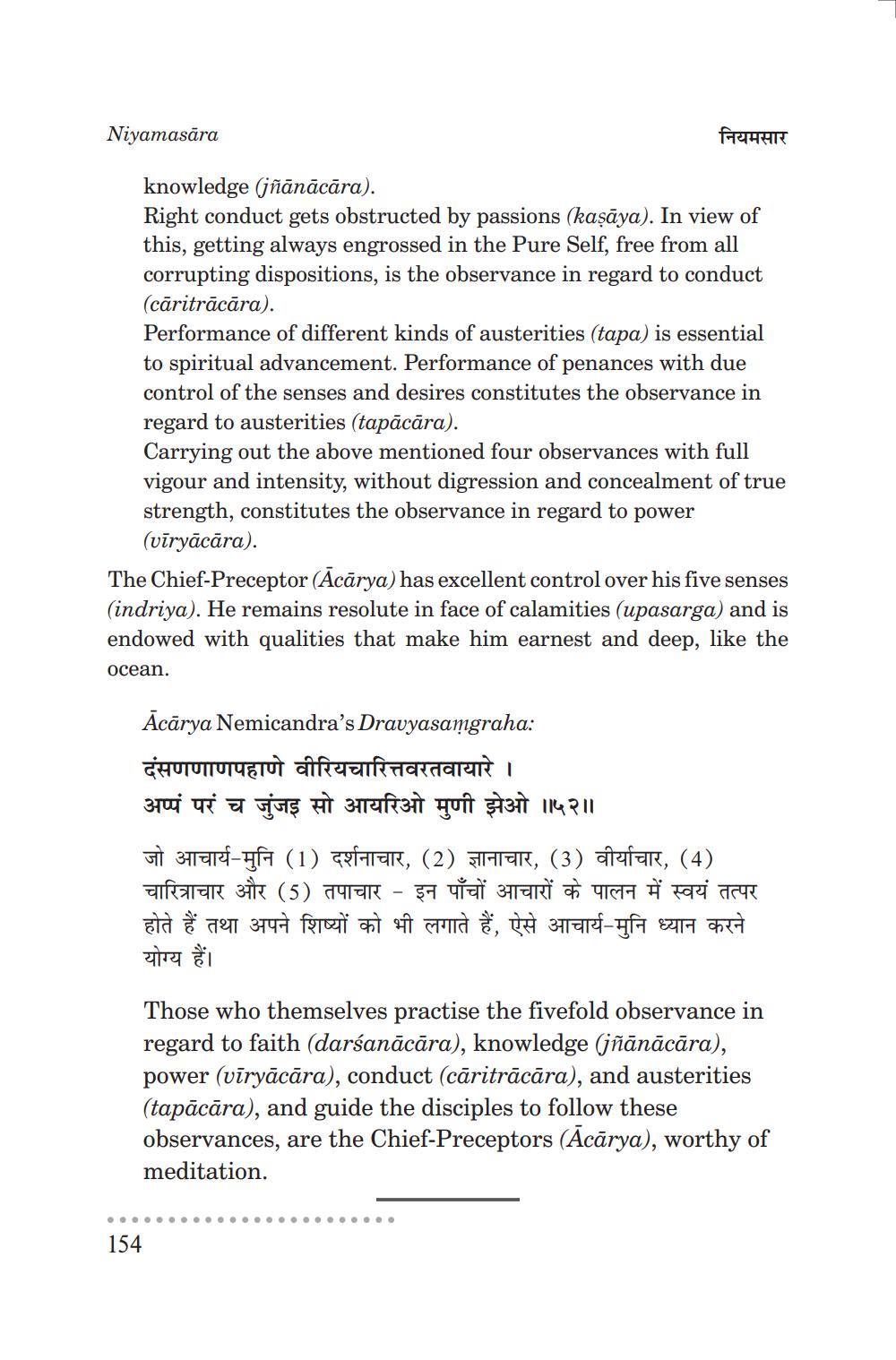________________
Niyamasara
नियमसार
knowledge (jñānācāra). Right conduct gets obstructed by passions (kaşāya). In view of this, getting always engrossed in the Pure Self, free from all corrupting dispositions, is the observance in regard to conduct (căritrācāra). Performance of different kinds of austerities (tapa) is essential to spiritual advancement. Performance of penances with due control of the senses and desires constitutes the observance in regard to austerities (tapācāra). Carrying out the above mentioned four observances with full vigour and intensity, without digression and concealment of true strength, constitutes the observance in regard to power
(vīryācāra). The Chief-Preceptor (Acārya) has excellent control over his five senses (indriya). He remains resolute in face of calamities (upasarga) and is endowed with qualities that make him earnest and deep, like the ocean.
Ācārya Nemicandra's Dravyasamgraha: दसणणाणपहाणे वीरियचारित्तवरतवायारे । अप्पं परं च जुंजइ सो आयरिओ मुणी झेओ ॥५२॥ 577 342f-4f9 (1) çfar, (2) FHER, (3) atefar, (4) चारित्राचार और (5) तपाचार - इन पाँचों आचारों के पालन में स्वयं तत्पर होते हैं तथा अपने शिष्यों को भी लगाते हैं, ऐसे आचार्य-मुनि ध्यान करने योग्य हैं।
Those who themselves practise the fivefold observance in regard to faith (darśanācāra), knowledge (jñānācāra), power (vīryācāra), conduct (cāritrācāra), and austerities (tapācāra), and guide the disciples to follow these observances, are the Chief-Preceptors (Ācārya), worthy of meditation.
.
.
.
.
.
.
.
.
.
.
.
.
.
.
.
.
.
.
.
154




